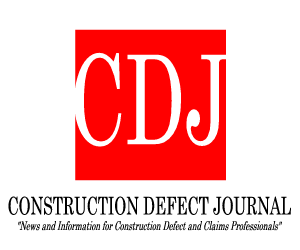
Newly released framework highlights critical role of adopting engineering codes and standards informed by latest climate data.
RESTON, Va. – The White House Climate Policy Office hosted the Summit on Building Climate Resilient Communities today and unveiled its National Climate Resilience Framework for communities to build more resiliently as they face increasingly severe weather events. The framework features comprehensive recommendations and opportunities for action, including partnerships between federal agencies and leading standards development organizations such as the American Society of Civil Engineers (ASCE), to improve the resilience of buildings and other infrastructure. ASCE president Maria Lehman, P.E., was in attendance for the Summit.
ASCE's most widely adopted standard, ASCE 7-22, is the primary reference of structural design requirements in all U.S. building codes and is updated every six years to reflect the latest data and trends presented by an ever-changing climate. Its most recent update, published in 2022, includes updates to environmental hazards used for building design including new wind speeds along the hurricane coastline, a completely new chapter for tornado loads, and the most substantial update to its chapter on flood loads since the inception of ASCE 7-22 – calling for structures to be built to withstand 500-year floods rather than the previous standard of 100-year flood mitigation.
Although modern codes and standards, such as ASCE 7-22, can mitigate climate hazards, many communities throughout the U.S. have not yet adopted these practices. The new White House framework calls for ensuring federal funding requires climate-resilient infrastructure investments by encouraging government at all levels to adopt consensus-based engineering standards, which would go a long way towards addressing vulnerabilities posed by future climate impacts.
ASCE, in conjunction with industry leaders represented at the Summit, supports federal efforts to improve climate data, enforce the most stringent codes and standards, and provide technical assistance to building and infrastructure stakeholders. To learn more about environmental hazard mitigation resources, follow ASCE's Pathways to Resilient Communities Toolkit, a plain-language guide for federal, state, and local leaders as they seek out standards, best practices, data, and strategies that can be implemented to safeguard communities across the country from increasingly severe weather events.
ABOUT THE AMERICAN SOCIETY OF CIVIL ENGINEERS
Founded in 1852, the American Society of Civil Engineers represents more than 150,000 civil engineers worldwide and is America's oldest national engineering society. ASCE works to raise awareness of the need to maintain and modernize the nation's infrastructure using sustainable and resilient practices, advocates for increasing and optimizing investment in infrastructure, and improve engineering knowledge and competency. For more information, visit www.asce.org or www.infrastructurereportcard.org and follow us on Twitter, @ASCETweets and @ASCEGovRel.




